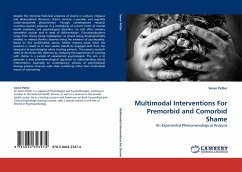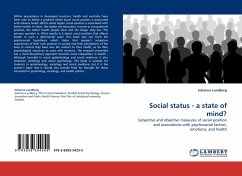
Multimodal Interventions For Premorbid and Comorbid Shame
An Experiential Phenomenological Analysis
Versandkostenfrei!
Versandfertig in 6-10 Tagen
52,99 €
inkl. MwSt.

PAYBACK Punkte
26 °P sammeln!
Despite the immense historical presence of shame in cultural, religious and philosophical discourse, shame remains a peculiar and arguably under-researched phenomenon. Though contemporary research connotes shame's presence in a multiplicity of current forms of mental health problems and psychological disorders, its role often remains somewhat unclear and in need of differentiation. Conceptualizations range from shame being maladaptive, to shame being developmentally needed, or indeed shame's absence being the evidence of psychopathy. Based on this multifaceted nature, further mystery arises wh...
Despite the immense historical presence of shame in cultural, religious and philosophical discourse, shame remains a peculiar and arguably under-researched phenomenon. Though contemporary research connotes shame's presence in a multiplicity of current forms of mental health problems and psychological disorders, its role often remains somewhat unclear and in need of differentiation. Conceptualizations range from shame being maladaptive, to shame being developmentally needed, or indeed shame's absence being the evidence of psychopathy. Based on this multifaceted nature, further mystery arises when the question is raised as to how shame should be engaged with from the viewpoint of psychologists when treating patients. The present research seeks to illuminate this dilemma by analyzing the experiences of working with shame in a sample of experienced psychologists. The aim is to generate a new phenomenological approach to understanding shame interventions, especially as contemporary schools of psychological therapy present clinicians with often conflicting rather than multimodal means of intervening.












